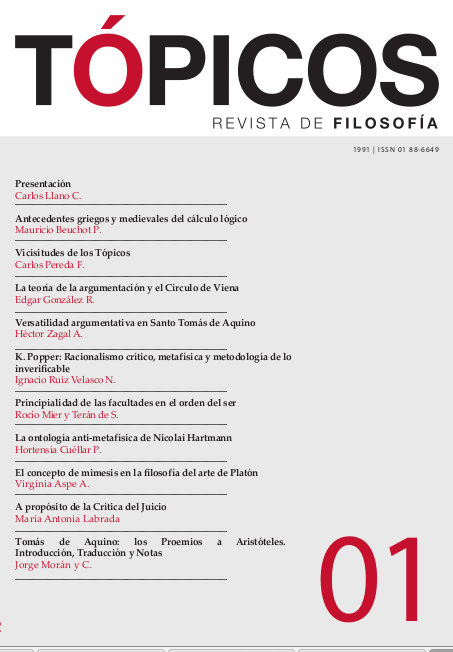Published 2013-11-28
Keywords
How to Cite
Downloads
Altmetrics
Citas
Abstract
Aristotle's sylogistics shows some precedents of the logical formalism as a deductive-axiomatic system that employs the notions of implication and validity, besides using variables for the terms. Megaric-Stoic philosophers studied material and formal or strict implication, whereas Scholastic philosophers came to ideas on a purified language for logic. Besides Lulio's, Descartes', Leibniz's or Hobbes' ideas, the combinatory studies of Albert the Great, Roger Bacon's insistence on the importance of mathematics as the paradigm of demonstration in science and logic, and the formal insights of John Buridan and Walter Burleigh on pure logic as a sintactic-semantic study of the schemata of inference and first principles which command how logic operates, are some of the precedents of the logical calculus that came first with George Boole in the nineteenth century.






